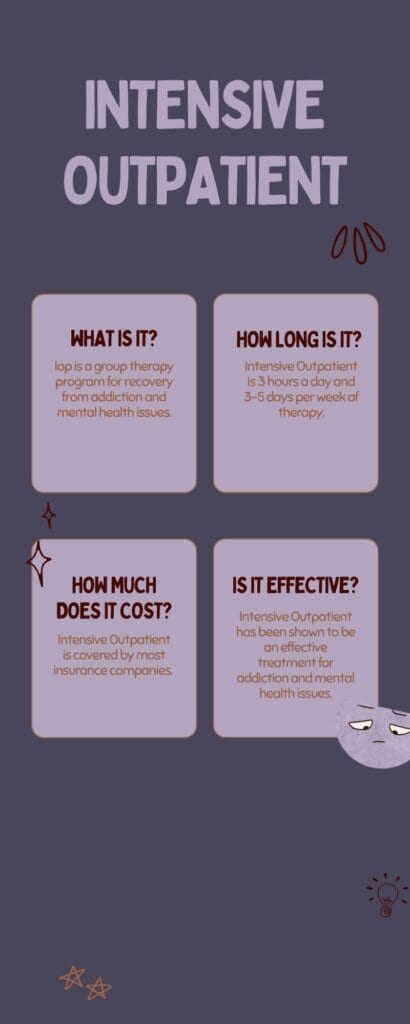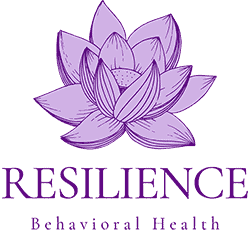Psychoeducation in Intensive Outpatient Treatment: Learning and Understanding in Massachusetts
Intensive Outpatient Treatment in Massachusetts is changing lives by giving focused Psychoeducation for long-term healing and understanding.
Hey folks, would you like to improve your mental health through Psychoeducation?
If yes, let’s connect; this guide is for you.
Intensive Outpatient Treatment in Massachusetts is there to aid you. Integrating Psychoeducation into Massachusetts’s Intensive Outpatient Treatment (IOP) programs signifies an important step toward inclusive recovery. Acknowledging the compound relationship between mental health and education, this new approach highlights circumstances and managing mechanisms.
Participants obtain help for recovery with a deeper understanding of their mental health matters in the dynamic learning environment.
What is Psychoeducation?
Psychoeducation is a type of learning that gives individuals the aptitudes they need to enhance their mental health. It authorizes families, individuals, or groups by providing info about coping mechanisms and psychological concepts to advance emotional health.
Massachusetts is famous for its promise of inclusive care. This interaction between intensive therapeutic intervention and education exemplifies an advanced mental wellness mission. 75% of individuals report that psychotherapy advances their mental health. For many, these improvements may mean an alteration in their whole life.
Significance of Psychoeducation in Intensive Outpatient Treatment:
There are many significances of Psychoeducation. Some of these are:
- Psychoeducation endorses a deeper understanding by giving vital facts about circumstances, available actions, and managing mechanisms.
- Patients with this information can control their symptoms, make wise selections, and actively participate in their curing.
- Psychoeducation recovers overall healing treatment and outcomes by developing self-awareness and dropping stigma.
- It also makes it calmer for enduring, their families, and action teams to connect, building a support system.
- Psychoeducation helps in the retrieval of the whole individual and fosters the growth of spirit for durable mental health.
- According to a systematic review of 20 studies, Psychoeducation appears to have lesser reversion and rise in devotion in simple mental illnesses like schizophrenia.

Some Vital Elements of Psychoeducation:
Comprehending Addiction and Mental Health:
In Massachusetts’ Intensive Outpatient Treatment, Psychoeducation has a high value on a thorough mental health understanding and addiction. As they discover the neurobiological surfaces of addiction, individuals learn how mental health and substance abuse subjects are linked. Through modified educational components, persons obtain information about cravings, triggers, and the psychological basics of their circumstances.
Methods of Treatment:
Do you know what the treatment method is? The prospectus strongly stresses a diversity of therapeutic modalities and proposes an exclusive mixture of evidence-based practices. Dialectical behavior therapy (DBT), motivational interviewing, and cognitive-behavioral therapy (CBT) collectively deliver a modified therapeutic method. Through the multiple therapies combination, users gain a supple toolkit to achieve the details of addiction and mental health.
Skill Development:
As the foundation of recovery, skill growth is the focus of Psychoeducation in intensive outpatient treatment. In addition to conservative therapy, clients participate in valuable workouts that help in stress reduction and interpersonal and coping skills. This applied method benefits people overwhelmed with problems in the actual world with self-assurance, building, flexibility, and heartening long-term cures.
Family-Based Learning:
Due to the importance of a developing environment, this package now includes relations. Family-based education sessions teach communication techniques, coping mechanisms, and the dynamics of compulsion. The treatment method aims to endorse all-inclusive care for the enduring and their family. It develops a helpful environment, fosters a supportive network, and deepens family ties; family members are well-versed about their member’s disorder, so they can aid in learning well. This makes the setting in which the patient is being handled more supportive.
Self-awareness and mindfulness:
Psychoeducation in the situation of intensive outpatient treatment in Massachusetts places a strong stress on self-awareness practices and mindfulness. Through this procedure, participants better understand their emotions, thoughts, and triggers. Mindfulness methods like reflective exercises and meditation are combined to recover emotional guidelines and endorse a present-focused mindset. This endorses long-term recovery and general well-being.
A Legal and Ethical Perspective:
In intensive outpatient treatment, Psychoeducation involves thoroughly examining moral and lawful issues. Participants learn about the lawful outline leading to addiction action and their responsibilities and rights. This info guarantees how moral values are tracked, and well-informed decisions are made. This delivers a sense of accountability and develops a safe and hopeful action setting.
Local Resources:
One of the most significant parts of Psychoeducation in Massachusetts is the perception of and use of local possessions. Contributors obtain info about retrieval systems, pertinent healthcare providers, and community-based support services. With this understanding, individuals are better equipped to create robust care networks and relations beyond the action program. Through public resources, persons recover their probabilities of long-term retrieval and create a system that supports sustained stability.
Reducing stigma:
To diminish the stigma associated with mental illness, Psychoeducation is a major component of intensive outpatient treatment in Massachusetts. Individuals can develop empathy and challenge stereotypes about mental health disorders by participating in focused educational programs. It provides an atmosphere that values open acceptance, communication, and caring groups. This plan eliminates the problems that avert people from getting the psychological health care they need.
Trauma-Aware Healthcare and Customized Therapy Schedules:
Trauma-aware healthcare in Massachusetts is given rank in intensive outpatient treatment to address the association between mental health and trauma. Discrete action plans consider each client’s preferences, obligations, and growth that will increase fully in their recovery. By giving each individual a modified approach, treatment competence increases, and applicants feel more independent in mental health.
Benefits of Psychoeducation in Intensive Outpatient Treatment:
For those fighting psychological health issues, Psychoeducation in intensive outpatient treatment (IOP) in Massachusetts provides priceless advantages. Through it, contributors thoroughly understand their circumstances, available action options, and actual managing mechanisms. It usually
- Improves information on mental health matters and methods of action.
- Increases self-awareness, which aids with handling and classifying symptoms.
- Encourages autonomy and active participation in the curative process.
- Improves message abilities for more optimistic relational interactions.
- Enhances compliance with medicine schedules and action plans.
- Reduce stigma related to mental health by distributing information.
- Recovers coping mechanisms for demanding situations, decreasing the likelihood of deterioration.
Conclusion:
In Massachusetts, making a thorough understanding of mental health through the addition of Psychoeducation into Intensive Outpatient Treatment (IOP) is highly genuine. The emphasis on teaching gives individuals the needed managing skills, pliability tools, and self-awareness. IOP authorizes members to face upcoming tasks by addressing instant worries and assimilating teaching with action. The adapted strategy in Massachusetts inspires a complete recovery track by admitting the worth of skill growth and well-informed policymaking. Through it, individuals begin to comprehend the difficulties of their mental health. The devotion to Psychoeducation within IOP becomes apparent as a valued resource that nurtures flexibility and lasting well-being.
How do you get access to Psychoeducation in Intensive Outpatient Treatment?
Have you decided to set out on a life-changing trail to mental health? Look no further. Resilience Behavioral Health is there to help you. Resilience Behavioral Health, a top all-inclusive mental health action facility, highlights custom-made programs.
In our Intensive Outpatient Treatment at Resilience Behavioral Health, you will learn about the efficiency of Psychoeducation. Feel free to call us at 888.401.1179.
Please discuss your exclusive needs during the discussion and learn about the available psychoeducation facilities. To determine our efficacy, look at our success stories. You can be sure that you will obtain outstanding care and have admittance to high-quality Psychoeducation in an IOP setting.


